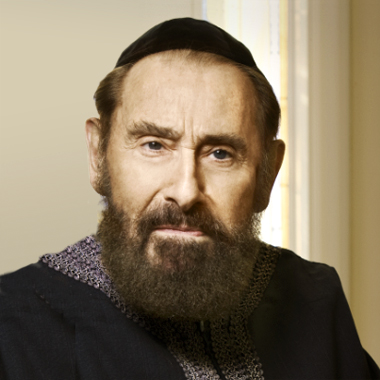Matot Masei is a tremendously long portion—244 verses, yet there are only two short pages of Zohar discussing it. We know because of the kabbalistic principle that less is always more, where the Zohar either omits or has very little to say on the subject, it is left for us to delve into the secret that can be revealed there.
"This is what these two portions are about: Quantum—everything is one."
This portion discusses the travels of the Israelites from one city to another; cities of the past that do not exist anymore. According to the Zohar, this is significant because it will be through the process of Quantum—where yesterday, today, and tomorrow are one—that chaos will not be part of our lives. Once we can see tomorrow, we can improve, avoid, or stay away from the event that can bring chaos to us. The Zohar explains that this is what these two portions Matot and Masei are about: Quantum—everything is one.
There are 112 verses in the portion of Matot, and the Zohar explains that the number 112 represents the interfacing between the world of the Tetragrammaton (the metaphysical world, the Flawless Universe where reality is not captured or overtaken by physical limitations) and the world of Elokim (the limiting, chaotic physical reality). The numerical value of the Tetragrammaton is 26, and when it is combined with the numerical value of Elokim (a different Name of God), which is 86, we have 112.
But God is not a renegade, a criminal that needs at least 72 different Names because He is running from city to city doing what he is doing and therefore needs another alias. We understand that each Name of God refers to a different dimension, and therefore we have 112 verses to tell us there exist two opposite realms—the Flawless Universe and the chaotic universe—which can be combined into one. This is the secret of Matot.
"We can bring the end to chaos by what we learn from the Zohar."
It says in the opening verse that Moses spoke first to the chieftains and then to the other Israelites about vows. The Bible recognized the power of the mind and the world. When we express something verbally, for example, “I will be there,” it has already happened in the 99 percent reality. Only in the 1 percent is it still left for us to manifest. When we make a vow or promise that we do not manifest, the Zohar says we create a black hole.
In any event, why did Moses first speak to the chieftains? Was it because he wanted to show respect, show a greater elevation of his feeling to these leaders rather than the other Israelites? The Zohar says it is simple: A chieftain means control. You control if you rule, and the idea of vows is only about control. Just as we are the creators of these black holes, we too can eliminate the black holes in our life. That is what this portion is about. The term chieftain is only to indicate that if we want to be in control, there is no other choice but to interface consciousness—which is connected to the Flawless Universe—and bring that consciousness to bear on the physical reality known as Elokim, the world of chaos. This is beautiful.
We have been given the system by which we can exercise control over two different elements: mind over body, over physicality, over chaos, wherever it might exist. With our consciousness we can bring in the Flawless universe; there is no question that we can bring the end to chaos in our personal lives by what we learn from the Zohar.
